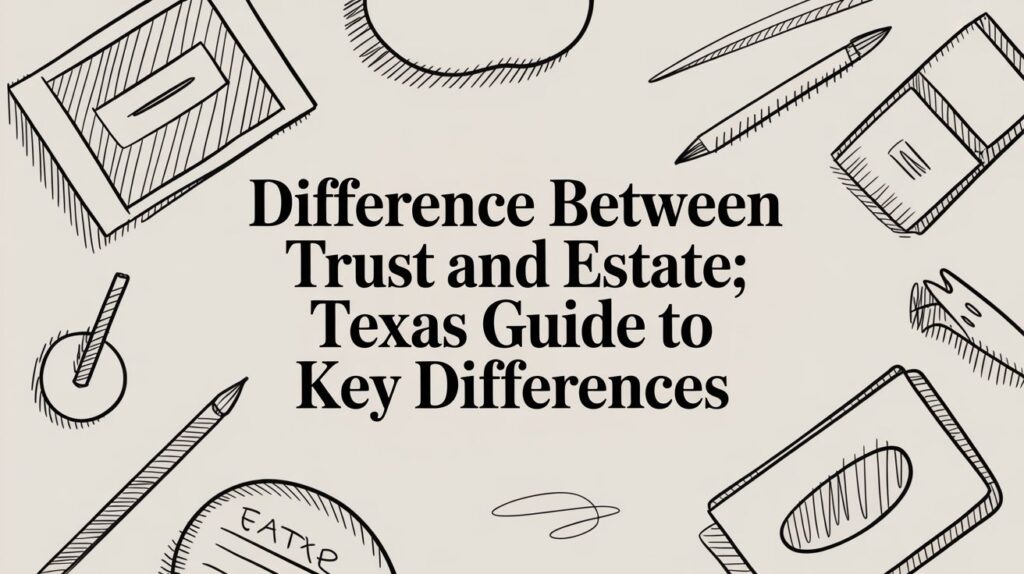Writing a will can feel like the final word on how your assets should be handled after death. After all, it’s your life, your property, and your final wishes. But in the eyes of the law, a will isn’t always unshakable. In Texas, your family members may still contest your will if they believe there are valid reasons to challenge it. Whether you’re drafting a will or preparing an estate plan, it’s essential to understand how contests work. It is also important to know what legal loopholes your loved ones might exploit to overturn your wishes.
The idea of a will challenge brings up images of courtroom drama, angry siblings, and long, drawn-out battles over heirlooms and bank accounts. While not every will ends up in court, will contests do happen more often than people think. It happens particularly in families where emotions run high or where unexpected decisions catch beneficiaries off guard. And when someone believes they’ve been wrongfully excluded, you can expect that emotions and legal maneuvering will come into play.
The state of Texas does recognize that wills should be honored. However, it also acknowledges that sometimes, wills are executed under questionable circumstances. That’s where legal loopholes—or rather, legally recognized grounds for contesting a will—come into play. Family members who feel slighted, suspicious, or outright excluded might use these routes to challenge the validity of the document.

What Does It Mean to Contest a Will in Texas?
To contest a will means to challenge its validity in probate court. This doesn’t mean simply disagreeing with the contents of the will. The person challenging it must claim there’s something fundamentally wrong with the way the will was created, signed, or executed. In Texas, will contests are typically filed after the testator—the person who made the will—has passed away. However, it must be filed within two years of the will being admitted to probate. Contesting a will is not a casual or simple process. It requires legal grounds, sufficient evidence, and often significant legal costs.
Only certain people can legally contest a will in Texas. This group includes heirs under Texas intestate laws (those who would inherit if there were no will), beneficiaries named in a prior version of the will, or any other party who has a direct, financial interest in the estate. Mere disagreement or emotional distress doesn’t qualify someone to file a will contest. This is unless they have a legal stake in the outcome.
The Legal Loopholes: How Wills Are Challenged
Even though Texas courts generally respect the intentions of the deceased, they will invalidate a will if they find that it violates one or more legal standards. These are the so-called “loopholes” families may use as legitimate claims under probate law that a will may be invalid.
One of the most common challenges is based on a lack of testamentary capacity. In plain terms, this means the testator did not fully understand what they were doing when they signed the will. They may not have known the extent of their estate, who their natural heirs were, or what the effect of the will would be. This type of challenge is especially common in cases where the testator was elderly or suffering from memory loss or dementia at the time the will was created.
Another route families take is the undue influence claim. This occurs when someone close to the testator is accused of pressuring or manipulating them into changing their will. This influence must be so severe that the free will of the testator is essentially overpowered. The presence of a new spouse, caretaker, or distant relative who suddenly becomes the primary beneficiary can raise red flags. This can also encourage family members to question whether the will reflects genuine intentions or was the product of manipulation.
More Loopholes

Fraud is another potential loophole that can be used to contest a will. This typically involves scenarios where the testator was tricked into signing the document. They might have believed they were signing something else, or they were misled about the contents of the will. Fraud is a serious allegation and can be difficult to prove. However, it remains a valid legal basis for a contest.
Improper execution also offers an avenue for contest. In Texas, for a will to be valid, it must meet specific legal requirements. The most common type of will—known as an attested will—must be signed by the testator in the presence of two credible witnesses who also sign the will. If someone claims the will was not properly witnessed or that one of the witnesses was not competent under Texas law, that can open the door to a successful challenge.
Texas also recognizes holographic wills, which are handwritten and signed by the testator without the need for witnesses. While they are legal, they are far more vulnerable to disputes over authenticity and intent. If the handwriting is hard to verify, or if the will lacks clear terms, family members may step in and argue that the document should not be honored.
Another lesser-known but impactful loophole is the existence of a more recent will. If someone produces a newer version that invalidates the older one, the court must determine which document is the true reflection of the testator’s final intentions. This is why testators must destroy previous versions and make sure the most recent one is clearly dated and properly stored.
Why Family Members Contest Wills
In many cases, the motives behind will contests are emotional as much as they are financial. Being left out of a will can feel like a personal rejection. Disputes over inheritance often stem from long-standing family tensions, perceived favoritism, or conflicts that were never resolved during the testator’s lifetime.
When someone is shocked by the contents of a will, they may be more likely to question its legitimacy. For example, if one sibling inherits everything and others are left out, it might lead to suspicions of foul play. These feelings often lead to legal action, especially if the will was changed shortly before death or under unusual circumstances.
Sometimes, family members are motivated by a genuine belief that the will doesn’t reflect what the testator truly wanted. Other times, the prospect of financial gain is enough to justify a court battle. In either case, if there is even a hint of irregularity, contesting the will becomes a very real possibility.
Preventing Will Contests: What You Can Do

While it’s impossible to completely eliminate the risk of a will contest, there are steps you can take to make it much harder for anyone to successfully challenge your wishes. One of the most effective strategies is to work with an experienced estate planning attorney. A professionally prepared will is far less likely to be contested than a DIY version, particularly if it follows all of Texas’s legal formalities.
Another preventative measure is including a no-contest clause in your will. Also known as an in terrorem clause, this provision states that any beneficiary who challenges the will and loses will forfeit their inheritance. While this doesn’t stop someone who has been completely disinherited from filing a contest, it can be a strong deterrent for those who stand to lose something valuable.
Documenting your mental capacity at the time of signing can also help defend your will later. Having a medical evaluation on file or videotaping the signing process with a lawyer present can serve as evidence that you were of sound mind and fully understood the contents of your will.
It’s also smart to communicate with your family about your estate plan, especially if your decisions might surprise them. While these conversations can be uncomfortable, they can prevent confusion and resentment later. Explaining your choices while you’re alive removes ambiguity and reduces the likelihood of emotional backlash that leads to legal action.
Final Thoughts
In Texas, a will is not immune from scrutiny. Your family can contest your will, and if they have legal grounds, they may succeed in having it overturned. Challenges based on lack of capacity, undue influence, fraud, improper execution, or the discovery of a newer will are all viable avenues for contest. These legal loopholes exist to protect individuals from manipulation or mistake, but they also create an opening for litigation among relatives.
If your goal is to ensure that your final wishes are honored without unnecessary drama or court battles, careful estate planning is your best defense. Consulting a knowledgeable attorney, keeping your documents updated, and making your intentions clear can help protect your legacy and preserve family peace. Wills are about more than dividing assets—they’re about leaving behind clarity, fairness, and purpose. With thoughtful planning, you can minimize the risk of conflict and ensure that your voice carries weight, even after you’re gone.








